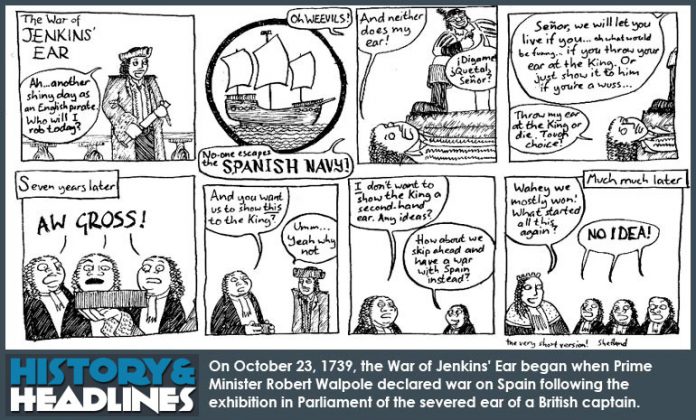Many commentators will agree that since the vote for the UK to leave the European Union, the views of the general population have become increasingly fractious and divided in attitudes towards ‘foreigners’. Nothing is new, and the British have always been suspicious of their European neighbours.
The Daily Mail, Express, Sun and, indeed, Facebook and Twitter are all currently having a field day in distorting ‘the truth’, whatever that may be. By now, we should all have begun to realise that there is no such thing as ‘the truth’, which, at best, is merely a perception of how we interpret an event, based upon our base opinions and prejudices. ‘The truth’ is always open to manipulation and distortion by others, however well meaning.
Do you remember any of your school history lessons? I certainly remember exciting historical events that I was taught as a pupil at school, as well as the content of lessons that I taught as a teacher. Was Cromwell a revolutionary hero, or was he a genocidal war criminal? I guess much of the answer will depend upon whether or not you hold an Irish passport.
What about Sir Francis Drake, Sir Walter Raleigh, whilst not forgetting Admiral Nelson’s attack on Tenerife? Were they simply well meaning explorers and adventurers seeking to enhance the common good, or profiteers, warmongers and unpleasant pirates? We often like to label people from the past as saints or sinners, but much depends upon what you have been taught to believe, as well as which country you have been taught in. For me, the definition of a pirate has certainly changed since I moved to Spain and the Canary Islands.
A report from the University of Las Palmas in Gran Canaria, which is undertaking an archaeological study in Fuerteventura to locate the remains of an estimated 90 English pirates, took my eye this week. These English pirates died during a battle in the Eighteenth Century with the residents of the Canary island of Fuerteventura. It is an interesting story, so let us turn the clock back 277 years to the year 1740…
The ‘War of Jenkins’ was a conflict that lasted from 1739 to 1748 between Spain and England, which refers to the ear of an English pirate captain that was cut off. In 1740, English pirates launched two major attacks on Fuerteventura, with a month between them. The Fuerteventura militia were successful in both of these pirate attacks, which also demonstrates the lack of harmony between England and Spain at this time.
The first attack involved 50 English pirates looting a village, whilst failing to realise that the island militia had already been placed in defensive positions. Towers at strategic locations had been built to watch out for English pirates who often attacked this island. Thirty English pirates were killed and 20 were taken prisoner. Islanders attacked the English invaders with clubs and stones, and hid behind a wall of camels when they fired muskets at them. These English prisoners were shipped off to the island of Tenerife to be dealt with.
A second English pirate attack took place one month later, but the number of pirates is disputed, as some reports claim that between 200 and 300 pirates were involved, whilst another suggests that fifty English pirates were killed.
The second attack was put down with much greater brutality; no prisoners were taken alive and all the English pirates were killed. The Fuerteventura islanders showed no mercy after this second audacious attack. This new research will last for several years, and whilst focussing on the conflict, will also search for the remains of the English pirates who were killed in Fuerteventura.
We often refer to Viking pirates raping and pillaging the British Isles, but sometimes I guess we should look closer to home for unreasonable behaviour. When we next visit a museum to admire Spanish gold, trinkets, doubloons and other treasures, let us remember that these were often stolen by English pirates from our European neighbours. Let’s face it, we have always had suspicions about anyone living across the water.
If you enjoyed this article, take a look at Barrie’s websites: http://barriemahoney.com and http://thecanaryislander.com or read his latest book, ‘Footprints in the Sand’ (ISBN: 9780995602717). Available in paperback, as well as Kindle editions.
© Barrie Mahoney





